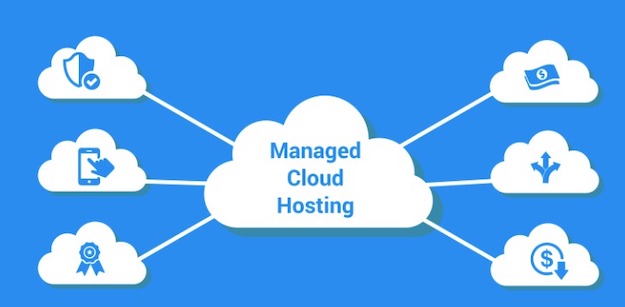The web world is getting huge transformation with the rise of cloud technology, artificial intelligence (AI), machine learning and other tech domains. These technologies are steadily moving into our everyday lives. From TV to smartphones, ecommerce to commercial retail sectors, everything is getting a new makeover under the umbrella of these rising technologies.
Talking about web application in specifics, today there are a number of tools and languages available to build a highly advanced application. But, just building an application is not the sole thing you should bother about, as you should also have a fully advanced web hosting platform that can deploy and support your web application.

So, as the technology is progressing, the norms of conventional hosting solutions are also changing. Gone are the days when shared hosting was only seen as the best PHP hosting solution to deploy web applications. Today, managed cloud hosting has taken its place, as it is much more advanced and offers new cutting-edge features.
Therefore, let’s discuss a few key points of managed cloud hosting in this article and their contrasting edge over the conventional shared hosting solutions.
Here are the Key Features of Managed Cloud Hosting.
Unlimited Resources
As compared to shared hosting, managed cloud hosting offers unlimited resources and plenty of tools to work with. If your website requires greater bandwidth and storage capacity, look no more than managed cloud hosting solution. It offers a range of resources for different sorts of web applications depending on their operational needs.
Whereas on the other hand, shared hosting offers limited resources because of its shared allocation. Many times, the websites hosted on shared hosting, gets disrupted due to limitation in memory or low bandwidth speed. That is where, managed cloud hosting fits the best if one wants scalable resources with better availability.
Performance Oriented
Managed cloud hosting offers top-notch performance for the deployed applications. The reason is the ease of customized configuration of the platforms, which enables users to choose and manage their hosting servers according to their application requirements. This gives users the freedom to configure performance-oriented servers, as they know what and how much resources their application would need to perform flawlessly fast.
Whereas because of its limited resources, shared hosting always stays low in performance and doesn’t provide the required results. That is a bit obvious as well, because whenever a shared server gets a hike in resource usage, it always disrupts the website’s live performance, making its execution slow with drastic slow speed.
Data Security
When it comes to application security, managed cloud hosting dominates the race as the clear winner. The infrastructure provides several inbuilt features which helps protecting the website data against malicious web attacks. From SSL certificates to storage segregation, customer identity management to dedicated server firewalls, there are plenty of features available in managed cloud hosting with great deal of usage flexibility.
Moreover, the backup feature provides more data insurance to the server administrators. It allows administrators to mirror important application data across different global data centers. So that in case of any accidental server breakdown or failure, the data can be retrieved back quickly from the alternative data centers.
Scalability at Ease
With managed cloud hosting platforms, users can easily scale up or down their resources as required for the project. This allows users to manage their resources timely and avoid any disruptions in the live app performance. Whenever your server starts running out of the initial resources, the ease of scalability feature allows you to increase them as per website needs, giving a great deal of flexibility to the users to configure their server anytime as the way they want.
Meanwhile in shared hosting, you are only stuck with the limited resources for a defined period of time. Most of the shared hosting platforms doesn’t offer any particular alternatives for this situation. That is why it becomes quite critical for the users to choose their server configuration wisely at the time of setup, otherwise they can get a very bitter result of it in later stages.
Zero Downtime
Having websites deployed on managed cloud hosting, users enjoy zero percent downtime regardless of any server condition. Because in cloud infrastructure, the servers are installed in different regions throughout the world, ensuring concurrent data access to the deployed web applications. That is why the uptime of applications hosted on cloud hosting platforms is nearly 99.99%, making sure that the application always stays live with expected flawless web performance.
Whereas in shared hosting, there is simply no guarantee of 24×7 application uptime. Because the servers are using shared resources with limited space, that could face hike in traffic at any time prompting applications to face undefined disruptions.
Final Words
This brings to the end of this article which demonstrated some of the key features of managed cloud hosting and why it holds great preference over shared hosting platforms. There are several features which makes managed hosting a clear winner over shared hosting, as it provides better resource allocation, speed, optimization tools and other services amongst others. It ensures all the required features a web developer, agency or an organization needs to function its live platform properly and to surge its performance right higher on the upper bar.




